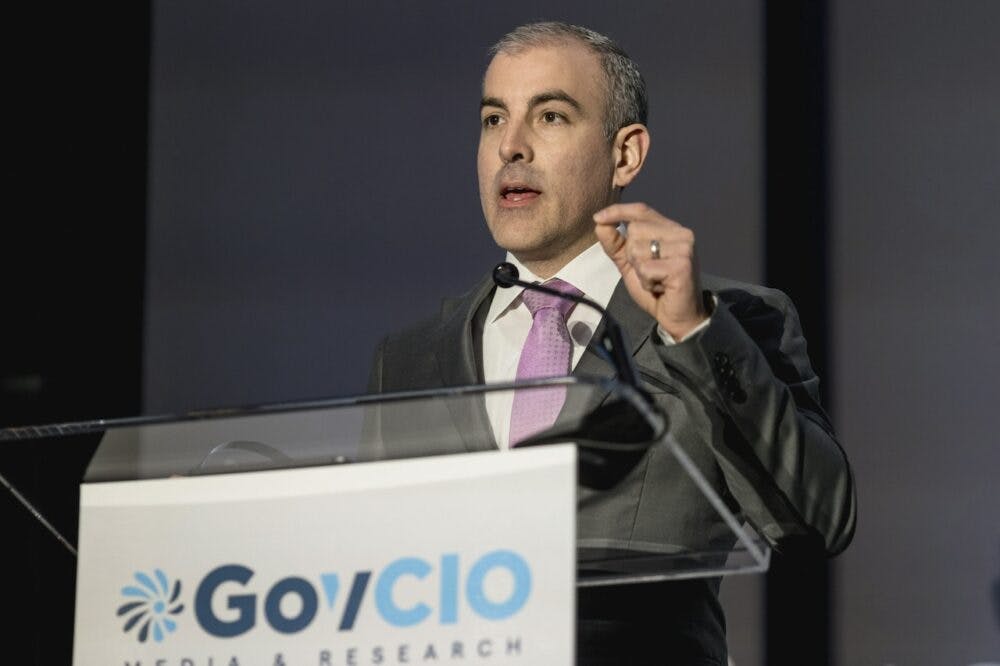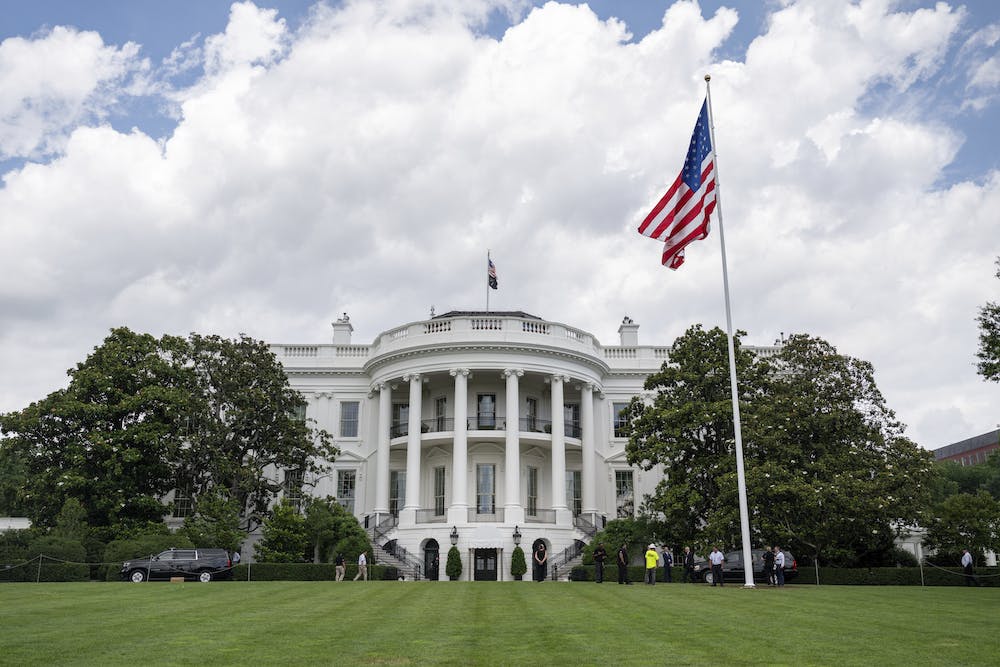Federal Cyber Reskilling Academy Accepting Apps for Second Cohort

The second cohort for the Federal Cyber Reskilling Academy — a full-time, three-month-long cyber-defense training program aimed to support a modern IT workforce — is now seeking applications after the first kicked off last week.
Federal CIO Suzette Kent broke the news at GDIT’s Emerge event this week. Following the success of the first, which will run through July 14, the second will be available for all federal employees and will run July 8 through Sept. 20. It is seeking applications through May 22.
The program is part of the presidential administration’s IT modernization efforts, as outlined in the President’s Management Agenda. It aims to invest in the IT skills of current federal employees, providing them opportunities to learn from weekly, in-person class sessions and skillful practice from “hands-on learning and labs,” according to the CIO Council.
The long-term workforce goal, as stated in the 2018 PMA, is to focus on “recruiting, reskilling, and retaining professionals able to help drive modernization with up-to-date technology.”
And there is plenty of talent to recruit and train to successfully achieve that goal.
Earlier this year, the White House’s Office of Management and Budget received 1,500 non-IT applications for its first cohort, while the original class size was set to 25 slots, Kent mentioned during the 2019 IT Modernization Summit in March. Due to popular demand among federal employees, as well as the assistance of virtual classes, the program was able to accept more than initially planned, Kent said.
Regarding class curriculum and training, the programs “vary by cohort,” the CIO Council said. The first class, for instance, will learn cybersecurity skills needed for graduates to secure cyber defense analyst positions.
While the program hopes to give federal employees the skill needed for cybersecurity and IT positions, the overarching goal is to give program graduates increased IT insight and knowledge to support the various missions of their agencies, according to the CIO Council.
This is a carousel with manually rotating slides. Use Next and Previous buttons to navigate or jump to a slide with the slide dots
-

AI Foundations Driving Government Efficiency
Federal agencies are modernizing systems, managing risk and building trust to scale responsible AI and drive government efficiency.
40m watch -

Trump Executive Order Boosts HBCUs Role in Building Federal Tech Workforce
The executive order empowers HBCUs to develop tech talent pipelines and expand access to federal workforce opportunities.
3m read -

Navy Memo Maps Tech Priorities for the Future Fight
Acting CTO’s memo outlines critical investment areas, from AI and quantum to cyber and space, as part of an accelerated modernization push.
5m read -

DOD Can No Longer Assume Superiority in Digital Warfare, Officials Warn
The DOD must make concerted efforts to address cyber vulnerabilities to maintain the tactical edge, military leaders said at HammerCon 2025.
4m read -

New NSF Program Cultivates the Future of NextG Networks
The agency’s new VINES program looks to tackle key challenges like energy efficiency and future-proofing wireless tech.
21m watch -

Marine Corps Operation StormBreaker Slashes Software Delivery Timelines by 17x
New program aims to deliver critical digital capabilities to warfighters at the "speed of relevance" by overhauling traditional processes.
4m read -

Tracking CIOs in Trump's Second Term
Stay informed on the latest shifts in federal technology leadership as new CIOs are appointed and President Trump's second term takes shape.
6m read -

DHA CDAO Spearheads Master Data Catalog to Boost Transparency
Jesus Caban plans to boost DHA's data maturity through a new master data catalog, governance frameworks and inventory of tech tools.
5m read -

IHS Prepares to Deploy PATH EHR at Pilot Sites in 2026
IHS targets PATH EHR pilot in 2026, emphasizing governance, collaboration and interoperability as key pillars of the modernization strategy.
4m read -

Trump Orders Spark Government-Wide Acquisition Overhaul
As Trump pushes for a faster, simpler procurement system, agencies are leveraging AI and adapting strategies to meet new requirements.
5m read -

IRS Makes Direct File Code Public as Lawmakers Debate Program’s Fate
The agency sees the Direct File source code as beneficial to government digital services despite what happens with it in proposed budgets.
5m read -

Inside Oak Ridge National Lab’s Pioneer Approach to AI
Energy Department’s Oak Ridge National Lab transforms AI vulnerabilities into strategic opportunities for national defense.
22m listen
















